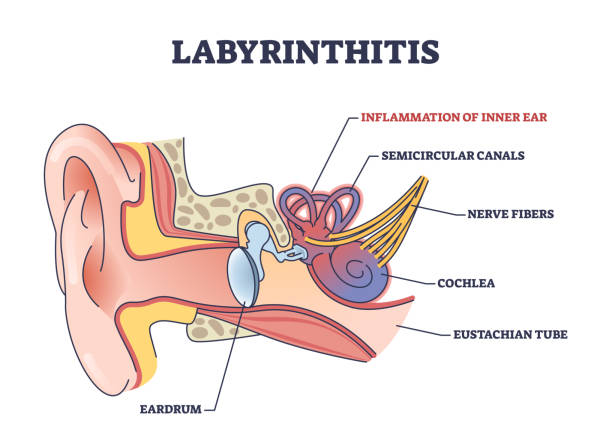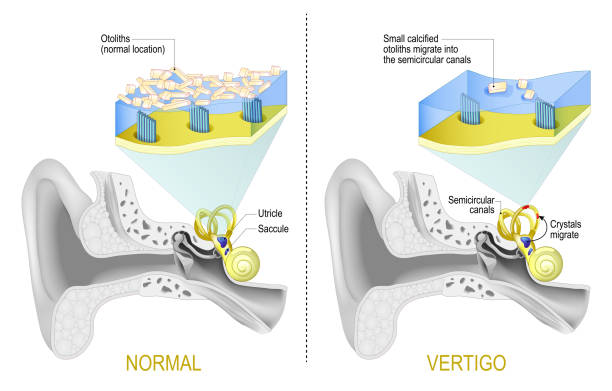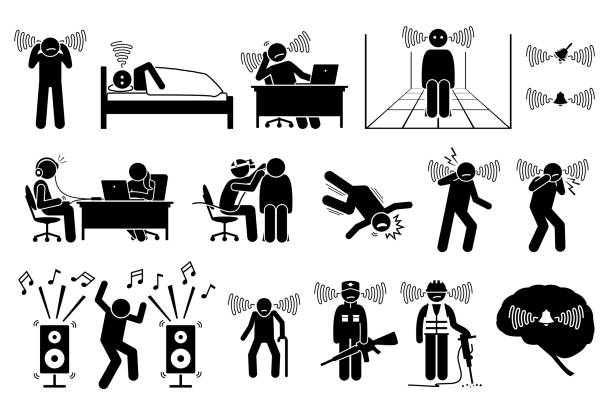Va Tinnitus is a normal condition that influences incalculable individuals from one side of the world to the next, including veterans. The U.S. Division of Veterans Issues (VA) considers tinnitus to be one of the most irrefutable conditions among veterans, regularly happening due to receptiveness to tempestuous aggravations like gunfire, impacts, and huge hardware during military help. While tinnitus is a condition that shows distinctively for everybody, it is fundamental to grasp the different symptoms, the likely reasons for tinnitus, and the accessible treatment choices for the individuals who experience it, especially veterans.
In this article, we will investigate the symptoms of tinnitus, what it explicitly means for veterans, and the potential systems accessible for overseeing it.
What is Tinnitus?
Tinnitus alludes to the view of sound, regularly a ringing, murmuring, or mumbling upheaval, in the ears or head when no external sound is free. It might be brief or continuous, and its power can move starting with one individual then onto the next. For some, tinnitus can be a minor burden, however for other people, it can turn into a crippling condition that influences day to day existence, prompting trouble focusing, resting, and in any event, keeping up with close to home prosperity.

Types of Tinnitus
Tinnitus can be grouped into two primary sorts: emotional and objective.
- Subjective Tinnitus: This is the most well-known structure and alludes to the kind of tinnitus that main the individual encountering it can hear. The sounds apparent can change in pitch, volume, and tone. It very well may be consistent or irregular.
- Objective Tinnitus: This is a more surprising kind of tinnitus that can be heard by a clinical benefits provider during an evaluation. Objective tinnitus may be achieved by a fundamental condition like a vein issue or a muscle fit. Regardless, it’s basic to observe that most veterans with tinnitus experience the theoretical kind.
Common symptoms of Tinnitus
The symptoms of tinnitus can change altogether, contingent upon the individual and the hidden reason. Be that as it may, the trademark symptoms of tinnitus is the view of sound in the ears or head. The following are a few normal symptoms of tinnitus that veterans might insight:
- Ringing Sounds: One of the most remarkable side effects of tinnitus is a resolved ringing upheaval in the ears. The sound can contrast in pitch, from a penetrating whistle to a lower murmuring sound. This ringing may be consistent or come and go.
- Buzzing or Murmuring Noises: While ringing is habitually associated with tinnitus, a couple of individuals hear a murmuring or mumbling sound. This sound could seem to be the uproar made by a state of honey bees or a streaming stream. The power and pitch can change, making it harder to ignore occasionally.
- Roaring or Whooshing: A couple of veterans report experiencing a roaring or whooshing sound, similar to the sound of ocean waves crashing or wind blowing. This kind of disturbance can be plainly and intrusive, impacting the ability to fixation or concentrate.
- Pulsatile Tinnitus: A specific kind of tinnitus, pulsatile tinnitus, This sort of tinnitus can frequently be portrayed as a pulsating or musical whooshing sound. Pulsatile tinnitus might show a hidden vascular issue and requires clinical consideration.
- Difficulty Hearing or Aversion to Sound: Different people with tinnitus report raised repulsiveness for express sounds, a condition known as hyperacusis. Common standard sounds could have every one of the reserves of being considerably more grounded than they ought to, making it attempting to work in raucous conditions. Moreover, certain individuals with tinnitus could encounter hearing debacle, particularly expecting the tinnitus is related with inner ear hurt.
- Pressure in the Ears: A couple of veterans with tinnitus could feel a sensation of finish or strain in the ears. This sensation might a portion of the time at any point go with the ringing or murmuring sounds and can add to misery and frustration.
- Sleep Disturbances: The predictable racket of tinnitus can make it trying to fall asleep or remain oblivious. This is particularly unsafe for veterans with continuous tinnitus. The tireless sounds could hold them back from relaxing with the eventual result of resting satisfactorily, achieving exhaustion, personality changes, and inconvenience working during the day.
- Concentration Issues: Tinnitus can make it attempting to zero in on regular tasks, such as examining, working, or partaking in conversations. The intruding thought of the uproar may be particularly overwhelming in quiet circumstances, making it hard to focus in on much else.
- Emotional and Chronic Symptoms: Ongoing tinnitus can provoke significant difficulty, including pressure, melancholy, and sensitivity. The constant thought of the racket can be mentally incapacitating, and individuals could fight to stay aware of ordinary significant and social affiliations. It’s typical for veterans with tinnitus to experience vibes of isolation or disappointment as a result of the impact on their own fulfillment.

Tinnitus in Veterans: A Unique Challenge
Veterans are particularly susceptible to creating tinnitus because of their openness to boisterous and abrupt commotions in military settings. This consolidates gunfire, impacts, plane noise, and huge hardware, all of which can make hurt the hear-capable system, inciting tinnitus. Believe it or not, tinnitus is one of the most generally perceived help related handicaps for veterans, with a normal 1.6 million veterans helping insufficiency compensation for tinnitus through the U.S. Part of Veterans Endeavours.
For some veterans, the beginning of tinnitus might happen slowly after delayed openness to elevated degrees of clamor. Be that as it may, for other people, it could be set off by a solitary horrible mishap, like a blast or shot. The extraordinary idea of military help and the high-risk conditions that veterans face make them more powerless against creating tinnitus.
Tinnitus in veterans can also be complicated by other factors, such as:
- Hearing Loss: Various veterans experience hearing incident on account of their receptiveness to clamorous disturbances during organization. The blend of hearing adversity and tinnitus can make it significantly more difficult to grant and investigate everyday presence.
- Post-Horrible Pressure Problem (PTSD): PTSD,
which is ordinary among veterans, can be exacerbated by tinnitus. The difficulty achieved by the consistent uproar could set off or obliterate symptoms of strain, hyperarousal, and flashbacks. Once in a while, tinnitus could attempt to add to the improvement of PTSD. - Actual Injuries: Veterans who have upheld head wounds or injury to the neck or skull during their organization may be more disposed to making tinnitus. Power outages or horrendous frontal cortex wounds (TBI) can hurt the hear-capable pathways, inciting the start of tinnitus.
Causes of Tinnitus in Veterans
The primary cause of tinnitus in veterans is exposure to loud noise, , which can harm the hair cells in the inward ear, prompting hear-able nerve brokenness. Here are probably the most well-known reasons for tinnitus in veterans:
- Explosive Devices and Firearms: Veterans who have served in fight zones are often introduced to obviously influences from explosives or gunfire, which can provoke hearing damage and tinnitus.
- Aircraft and Vehicle Noise: Plane uproar, helicopters, tanks, and other military vehicles can deliver plainly upheavals that mischief hearing and add to tinnitus.
- Prolonged Openness to Noisy Environments: Even past fight, veterans could concentrate intently on conditions where upheaval levels are high, similar to military arrangement workplaces, oceanic ships, and resting cover.
- Head or Neck Injuries: Actual injury from accidents or impacts can incite TBI or neck wounds, which in this manner can impact hearing and lead to tinnitus.
- Age-Related Hearing Loss: As veterans age, ordinary hearing incident can add to the start of tinnitus, especially if they have recently experienced hearing damage in view of their strategic assistance.

Managing Tinnitus in Veterans
While tinnitus as of now has no fix, there are multiple ways veterans can oversee and decrease the impact of the condition:
- Hearing Aids: For veterans with hearing disaster going with tinnitus, listening gadgets can upgrade outside sounds and make tinnitus less unmistakable. Explicit tinnitus-veiling compact hearing collaborators are furthermore available.
- Sound Therapy: Using tedious sound, nature sounds, or surrounding sound can help with covering the ringing in the ears, making it less redirecting.
- Cognitive Conduct Treatment (CBT): CBT can help veterans with managing the near and dear and mental pieces of tinnitus by showing strategy for real life adaptations, loosening up techniques, and care.
- Tinnitus Retraining Treatment (TRT): TRT gets sound treatment together with coordinating to help with retraining the brain to dismiss tinnitus, allowing veterans to end up being less aware of the sound after some time.
- Medications: While there is no medication to fix tinnitus, a couple of drugs can help with diminishing secondary effects, for instance, disquiet or wretchedness related with the condition.
- VA Support: The U.S. Part of Veterans Endeavours offers resources, including powerlessness benefits, tinnitus offices, and directing organizations, to help veterans with adjusting to tinnitus.
Conclusion
Tinnitus is a prevalent and often distressing condition for veterans, with side effects going from ringing and humming to pulsatile clamors and trouble concentrating. The impact of tinnitus can be significant, influencing veterans’ personal prosperity, capacity to work, and personal satisfaction. Figuring out the symptoms and reasons for tinnitus, particularly in accordance with veterans, is essential in giving viable treatment and backing.
In spite of the fact that there is no remedy for tinnitus, a blend of sound treatment, mental health treatment, convenient hearing aides, and various methodology can help with managing the condition and work on the individual fulfilment for veterans. It’s key for veterans experiencing tinnitus to search for help from clinical benefits providers, the VA, and tinnitus specialists to explore open treatment decisions and make a redid arrangement for mitigation. With the right approach, tinnitus can become a manageable condition rather than one that controls their life.
[sp_easyaccordion id=”4646″]